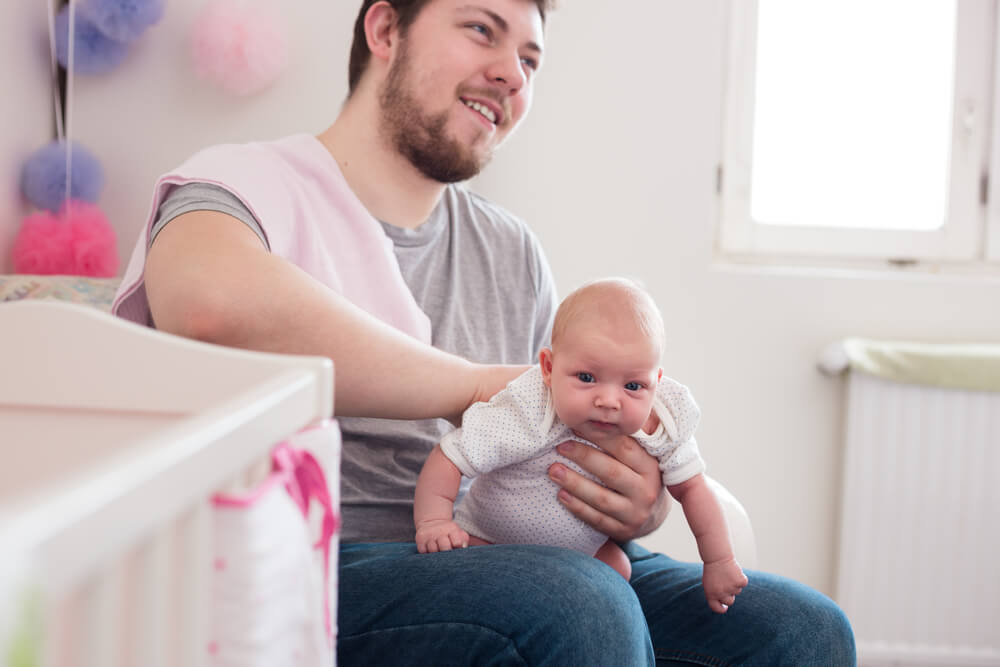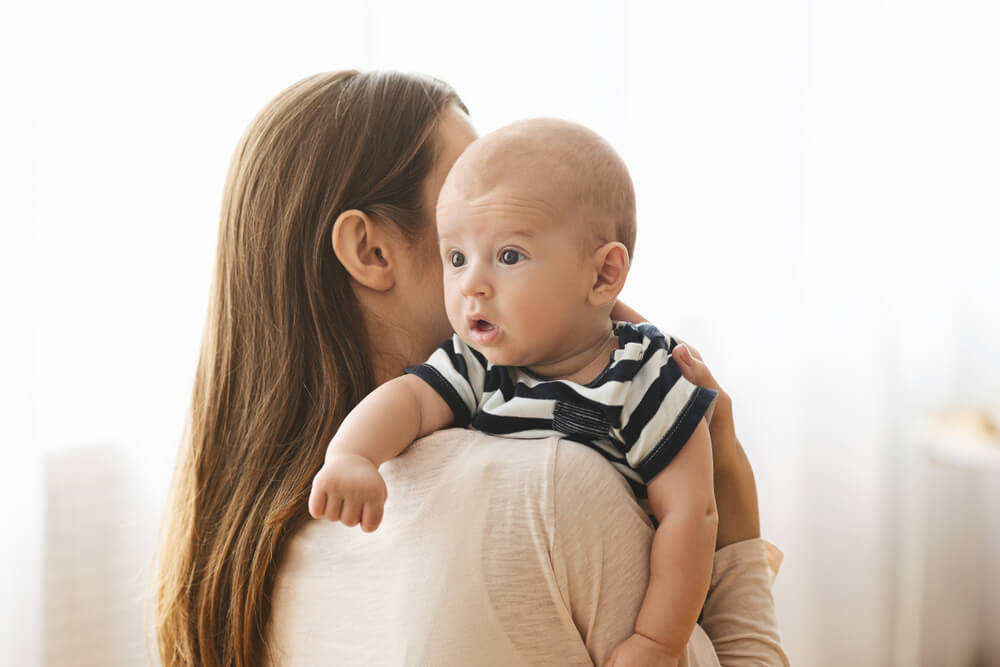Burping a baby may seem scary at first, but it is an integral part of their feeding routine. During feeding, your little bundle of joy may swallow a lot of excess air, and burping the infant can help get rid of the excess air and gassiness. Burping a baby may also help with easing feelings of fullness and may prevent the baby from spitting up.
If you were looking to learn more about the signs that your baby needs to burp, your favorite experts on pediatric care in Miami, Florida, are here to help you learn everything you need about burping a baby. In this article, Doctor Ana and her team will teach you how to burp a newborn and more.
Also, after learning the basics of burping an infant, head on over to our blog section and learn how to deal with a bloated baby belly from another article of ours.
How To Burp a Newborn: Which Positions to Try?
Without further ado, let’s jump into three of the most prominent burping techniques that have helped parents and caregivers for years, standing the test of time. Go ahead, give each of them a try, and you will probably stick with the one that works the best for your baby and comes the most naturally to you as well.
Technique Number One: Before burping the newborn, hold them upright against your chest. Make sure that their chin sits comfortably on your shoulder. Support them with one hand while patting their back with your other hand gently until they start burping. You’ve probably seen this technique, as it’s probably the most common.
Technique Number Two: This approach involves placing your baby on your lap. The infant should sit up. With one hand, support their chest and head, while with the other, pat their back softly.
Technique Number Three: Place the baby on your lap and ensure that their belly is faced down. Support their head, which should be higher than their head, and with your other hand, pat their back.

Burping a Newborn: Valuable Tips
Here are some valuable tips you may use next time you are burping your baby:
- The pats on their back should be gentle and repeated.
- As you pat them, slightly cup your hand to “soften the blows” even more.
- To protect your clothing from wet burps or spit-ups, put a towel or drape over your shoulder or lap.
How Long Do You Have To Burp a Baby?
Good question. Really, how long do you have to burp a baby? To be honest, there’s no recommended time length required to burp your baby. The more important question to answer is how often you should burp them. That said, ensure to burp your baby regularly and frequently during feedings, even in cases when they don’t look like they need to be burped.
Delaying burping until after a feeding might lead to your baby swallowing excessive air, potentially causing discomfort and fussiness. It’s advisable to pause the feeding periodically and attempt to burp your baby during the process. Another technique to consider is paced bottle feeding, which regulates the flow of breast milk or formula from the bottle, potentially reducing the likelihood of gas-related issues. This proactive approach can contribute to a more comfortable feeding experience for your little one.
That said, here are additional tips for burping your baby while feeding:
- If you are feeding expressed breast milk or formula through a bottle, you’ll want to burp the infant every time they’ve had around two or three ounces of milk.
- If the baby is breastfed, you’ll need to burp them each time they switch breasts. Still, remember, some babies may not need to be burped every time because they might not swallow as much air.
- Go back to feeding if the baby hasn’t burped after some time has passed. Keep in mind that the baby probably won’t burp every time you want them to.
Signs The Baby Needs to Burp
What are the signs that show your baby needs to burp? If you see any of the following, it might suggest that you will need to burp your baby more frequently, let’s say, after every ounce of milk when bottle-feeding and every couple of minutes (around five) during breastfeeding:
- The baby spits up frequently.
- The infant is gassy.
- The baby shows signs of GERD or gastroesophageal reflux disease.
- They seem overly fussy.
Following a feeding, it’s advisable to keep your baby in an upright position for a duration of 10 to 15 minutes. This practice can aid in reducing the likelihood of your baby spitting up. However, if your baby does experience spitting up or has been diagnosed with GERD (Gastroesophageal Reflux Disease), you may need to extend the burping time accordingly. This precaution can help in managing and minimizing any potential discomfort.
Other Cases When Burping Might Have Advantages
If the baby wakes up suddenly and if you think it might be due to gassiness, burping the infant might help relieve some of the pressure and help them go back to sleep.
In the case of a colicky baby, more frequent burping may help them pass the gas that’s the byproduct of all the air they’ve swallowed during their crying spells.
Make Burping More Effective
Focus less on wanting your baby to burp faster. Instead, strive to make the burps more effective. In that regard, the following may help:
- Burping more frequently while feeding
- Using one of the three main burping positions we’ve discussed above.
Also, don’t panic if your baby doesn’t burp every time. Sometimes, they may not burp at all. If they don’t show any signs of doing so, resume their feeding.

How Long Should You Burp The Baby?
There isn’t a set duration for burping your baby, but rather, it’s best to burp your baby regularly throughout their feeding. For bottle feeding, aim to burp your baby after every two to three ounces of milk. If you’re nursing, consider burping your baby each time they switch breasts. This approach helps minimize the accumulation of gas and ensures your baby remains comfortable during the feeding process.
Hopefully, these tips will help you. We understand that things can get pretty scary and overwhelming at the very beginning of this wonderful journey. Still, burping your baby is a fundamental part of feeding and a thing that will more or less come naturally to you.
That said, if you need any help or encouragement, feel free to reach out to Doctor Ana and her expert team for more tips and guidance.




